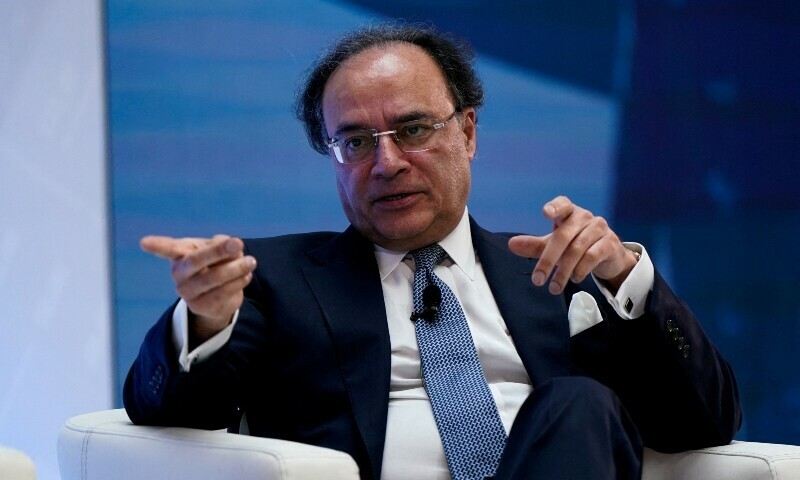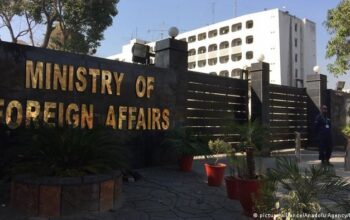By Monitoring Desk
ISLAMABAD: Pakistan has asked China to expand its currency swap line by 10 billion yuan, Finance Minister Muhammad Aurangzeb said, as the cash-strapped nation seeks to bolster reserves and plans a debut panda bond by year-end to diversify funding.
Speaking to Reuters on the sidelines of the IMF and World Bank spring meetings in Washington, Aurangzeb said the proposed increase would lift Pakistan’s existing 30 billion yuan swap facility to 40 billion yuan.
“From our perspective, getting to 40 billion renminbi would be a good place to move towards … we just put in that request,” Aurangzeb said.
Reuters reported that China’s central bank has been promoting currency swap lines with a raft of emerging economies, including the likes of Argentina and Sri Lanka.
Pakistan has also made progress on issuing its first panda bond – debt issued on China’s domestic bond market, denominated in yuan. Talks with the presidents of the Asian Infrastructure Investment Bank (AIIB) and Asian Development Bank (ADB) – the two lenders who are in line to provide credit enhancements for the issue – had been constructive, the minister said.
“We want to diversify our lending base and we have made some good progress around that – we are hoping that during this calendar year we can do an initial print.”
Meanwhile, Aurangzeb expected the IMF executive board to sign off in early May on the Staff Level Agreement on its new $1.3 billion arrangement under a climate resilience loan program as well as the first review of the ongoing $7 billion bailout program.
Getting the green light from the IMF board would trigger a $1 billion payout under the programme, which the country secured in 2024 and has played a key role in stabilizing Pakistan’s economy.
Asked about the economic fallout from the tensions with India following the killing of 26 men at a tourist site earlier this month, Aurangzeb said it was “not going to be helpful.”
The attack triggered outrage and grief in India, along with calls for action against neighbour Pakistan, whom New Delhi accuses of funding and encouraging terrorism in Kashmir, a region both nations claim and have fought two wars over.
After the attack, India and Pakistan unleashed a raft of measures against each other, with Pakistan closing its airspace to Indian airlines and suspending trade ties, and India suspending the 1960 Indus Waters Treaty that regulates water-sharing from the Indus River and its tributaries.
Trade flows between the two countries had already fallen off sharply following past frictions and totalled just $1.2 billion last year.
Aurangzeb estimated growth around 3 percent in the current financial year which ends in June 2025, and in the 4-5 percent range next year, with a view to hitting 6 percent thereafter.
Copyright © 2021 Independent Pakistan | All rights reserved




